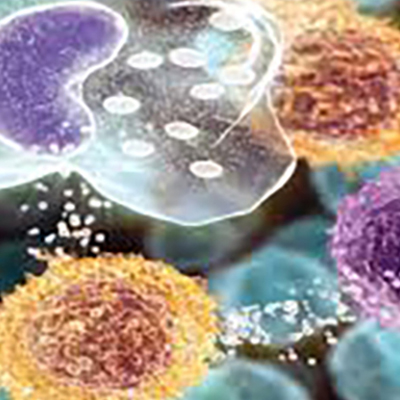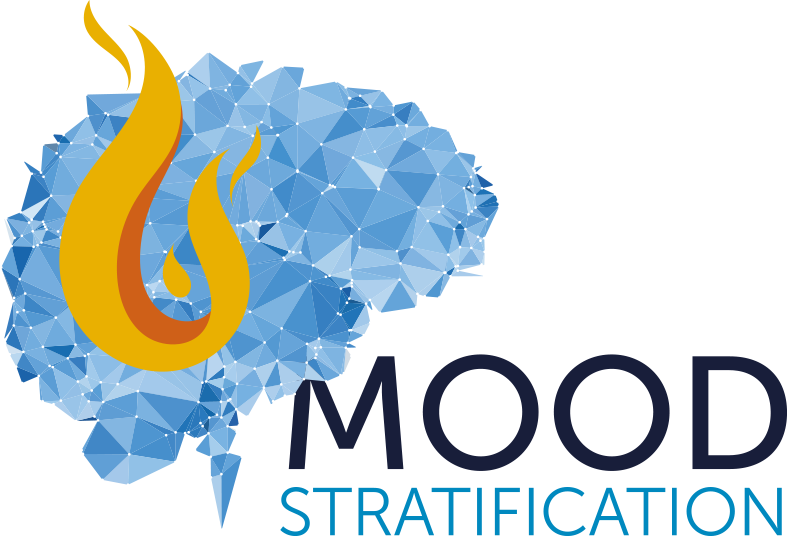
Research: MOODINFLAME, PSYCH-AID AND MOODSTRATIFICATION

MOODSTRATIFICATION.EU reflects the results from EU funded research on how imbalances in the immune system are able to cause mood disorders. The hypothesis in this research is that at least part of the major mood disorders, like bipolar disorder (BD), major depressive disorder (MDD) and postpartum psychosis (PP), are the result of a systemic abnormal condition of imbalances in the T cell system and a proneness to inflammation. This immune condition may also lead to various autoimmune diseases (such as Hashimoto’s thyroiditis – which is more frequent in patients with major mood disorders).
In the view of the researchers of MOODINFLAME, PSYCH-AID AND MOODSTRATIFICATION major mood disorders are thus largely caused by an immune mediated dysfunction and mild chronic inflammation of certain brain areas important for mood regulation, such as the limbic system. We reflect this hypothesis on the following page: immune neurological model.
The EU funded research on this model started in 2008 by the MOODINFLAME project (2008 – 2012), followed by PSYCH-AID (2013-2017) and the current project MOODSTRATIFICATION (2018-2023). Read more about these projects in the following texts:
MOODINFLAME (2008-2012): constructing a new pathogenesis model
In MOODINFLAME a new model of the origin, development and progress of mood disorders was constructed, based on studies of animal model systems and advanced assays to detect immune imbalances in patients and individuals at risk for major mood disorders. The imbalances reflect an abnormal equilibrium between neuronal cells, hormones and cells of the immune system in the brain (including microglia, macrophages and T cells), resulting in an abnormal proneness to inflammation in both the brain as well as in peripheral tissues (since the equilibrium is also disturbed in all sorts of organs and tissues outside the brain). In the model the investigators identify two stages in the development of a severe mood disorder. In the first stage there are not yet symptoms of a mood disorder, but there are already biological markers of an abnormal equilibrium of the T cell system in general, which disturbs the interaction between the endocrine (=hormone) system, the immune system and the neurological system. This results in a disturbed development of the brain, in particular in areas important for mood regulation, learning and an adequate responsiveness to stress.
Download: Summary of the MOODINFLAME Project (2008 – 2012).
PSYCH-AID (2012-2016): developing clinical applicable blood assays
The immune and endocrine (=hormone level) tests used in MOODINFLAME were further refined, validated and sometimes already registered in PSYCH-AID, in combination with the results of another EU-FP7 project: SchizDX. These laboratory tests focused on immune functions reflecting the imbalanced immune system and the activated inflammatory response system in conjunction with an abnormal neuro -endocrine equilibrium. The aim of PSYCH-AID was the development of clinically applicable blood assays identifying patients and other individuals with such altered neuro-immuno-endocrine profile and at risk for major depressive disorder and bipolar disorder. To realize this, the efforts of academia and industry were combined in a cooperation with 9 European partners, excelling in this field: 5 academia and 4 SME’s.
Download: Summary of PSYCH-AID (2013-2017)
MOODSTRATIFICATION (2018-2023): Novel immune treatments for depression. The stratification of patients via immune tests to successfully treat depression.
Twelve European research institutes cooperated in the project.
Despite considerable delays, due to the lock downs of the corona pandemic and (administrative) struggles with our ethical review boards, we have successfully ended the MOODSTRATIFICATION project in 2023. We have reached virtually all of our objectives and have delivered important new breakthroughs:
- We discovered abnormal immune states of T cells and of monocytes, macrophages and microglia in major mood disorders
- We found differences in these abnormal immune states between Major Depressive Disorder (MDD) and Bipolar Disorder (BD).
This difference makes an early laboratory diagnosis of MDD and BD possible which facilitates an earlier and better treatment of the disorders.
- We found a new therapy (low dose IL-2) for MDD and BD in two placebo-controlled trials. This therapy increases the numbers of a beneficial subgroup of immune cells (the T regulatory cells) and alleviates the severity of the depression.
- We showed that a new therapy using thymus hormone had beneficial effects in an open label non-placebo-controlled trial of a small group of five depressed patients. The therapy rejuvenated premature aging T cells and alleviated the severity of depression.
- We identified a subgroup of depressed patients characterized by a specific T cell state (a premature aging of a specific subgroup of T cells) , who were in particular reactive to the beneficial effects of spinning therapy. This approach was also cost-effective.
- Overall our data show that antidepressant treatments (be it immune or non-immune) “do not fit all”, but that depressed patients need to be preselected with our developed immune tests to enable personalized immune and non-immune treatment schemes for better results.
MOODSTRATIFICATION: A paradigm change.
Concretely, MOOSTRATIFICATION has introduced a paradigm change and:
- Identified immune cell abnormalities as cause for severe mood disorders
- Identified new immune treatments for severe mood disorders correcting these immune cell abnormalities,
- Identified characteristic immune states responsive to these treatments.
Download: objective of the project MOODSTRATIFICATION (2018-2022).
